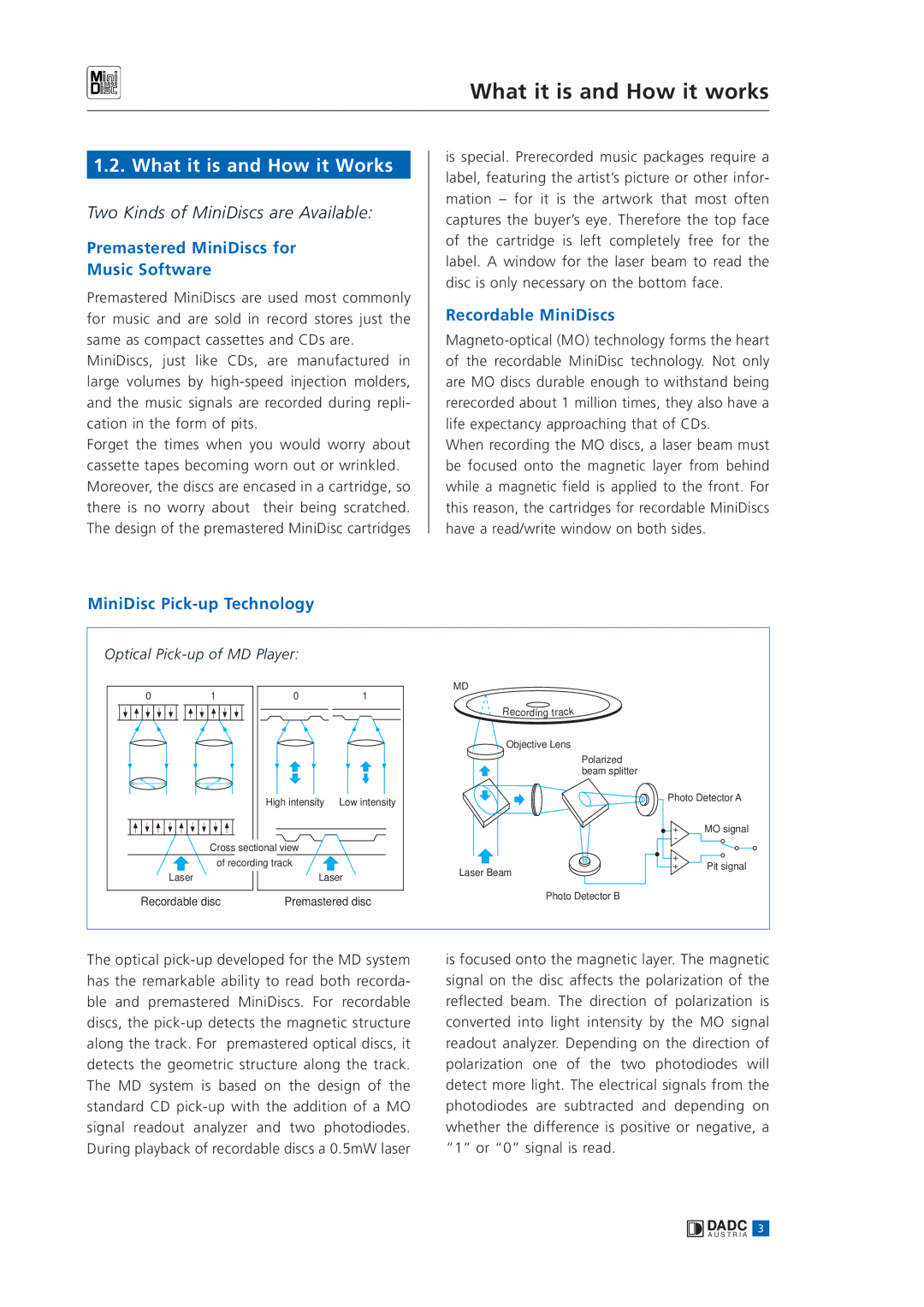
What it is and How it works
1.2. What it is and How it Works
Two Kinds of MiniDiscs are Available:
Premastered MiniDiscs for
Music Software
Premastered MiniDiscs are used most commonly for music and are sold in record stores just the same as compact cassettes and CDs are.
MiniDiscs, just like CDs, are manufactured in large volumes by
Forget the times when you would worry about cassette tapes becoming worn out or wrinkled. Moreover, the discs are encased in a cartridge, so there is no worry about their being scratched. The design of the premastered MiniDisc cartridges
is special. Prerecorded music packages require a label, featuring the artist’s picture or other infor- mation – for it is the artwork that most often captures the buyer’s eye. Therefore the top face of the cartridge is left completely free for the label. A window for the laser beam to read the disc is only necessary on the bottom face.
Recordable MiniDiscs
When recording the MO discs, a laser beam must be focused onto the magnetic layer from behind while a magnetic field is applied to the front. For this reason, the cartridges for recordable MiniDiscs have a read/write window on both sides.
MiniDisc Pick-up Technology
Optical |
|
|
|
| ||
0 | 1 | 0 | 1 | MD |
|
|
|
|
| ||||
|
|
|
| Recording track |
|
|
|
|
|
| Objective Lens |
|
|
|
|
|
| Polarized |
|
|
|
|
|
| beam splitter |
|
|
|
| High intensity | Low intensity |
| Photo Detector A | |
|
|
|
|
| ||
|
|
|
|
| + | MO signal |
| Cross sectional view |
|
| - |
| |
|
|
| + |
| ||
| of recording track |
|
|
| ||
|
| Laser Beam | + | Pit signal | ||
| Laser | Laser | ||||
|
|
| ||||
|
|
|
| |||
Recordable disc | Premastered disc | Photo Detector B |
|
| ||
|
|
| ||||
The optical
is focused onto the magnetic layer. The magnetic signal on the disc affects the polarization of the reflected beam. The direction of polarization is converted into light intensity by the MO signal readout analyzer. Depending on the direction of polarization one of the two photodiodes will detect more light. The electrical signals from the photodiodes are subtracted and depending on whether the difference is positive or negative, a “1” or “0” signal is read.
DADC 3
A U S T R I A
